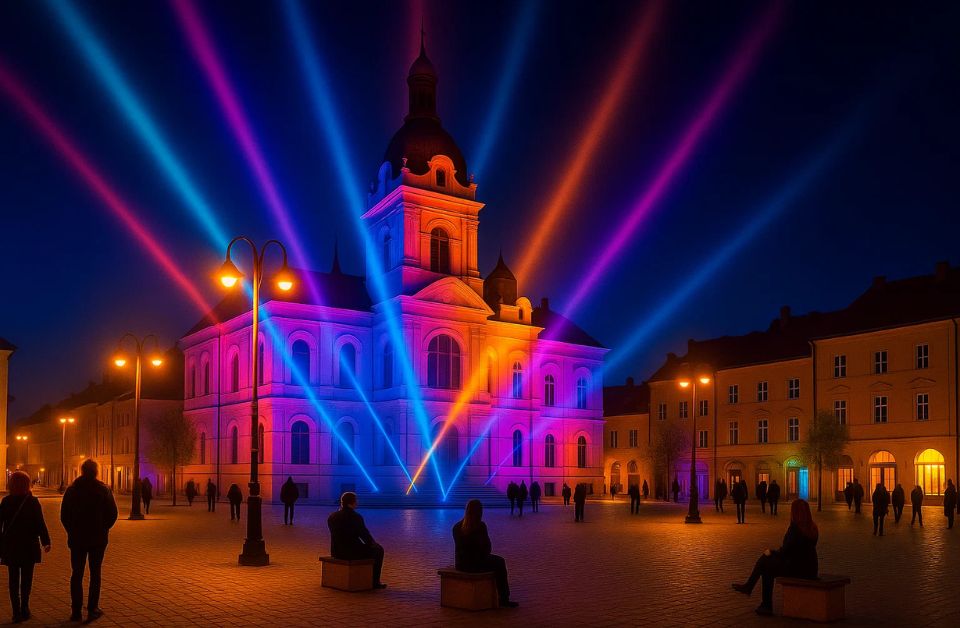Cities worldwide are rapidly adopting smart outdoor lighting to enhance energy efficiency, safety, and aesthetics. Beyond simple illumination, lighting now plays a role in shaping the identity of urban spaces, enhancing public safety, and even boosting tourism. Among the many technologies driving this transformation, DALI (Digital Addressable Lighting Interface) and DMX (Digital Multiplex) are emerging as game-changers.
Both systems allow precise control, automation, and customization of lighting, making them indispensable tools for modern urban design. Whether it’s a city plaza, building façade, or public park, these protocols offer unprecedented flexibility and performance.
In this article, we’ll explore how DALI and DMX are revolutionizing urban landscapes, their differences, and where each excels.
Understanding Smart Outdoor Lighting
Smart outdoor lighting goes beyond switching lights on and off. It incorporates:
- Automation – Lights adjust according to the time of day, occupancy, or specific events.
- Energy Efficiency – LED technology paired with intelligent control saves power.
- Customization – Light color, intensity, and patterns can change dynamically.
- Data Integration – Lighting systems connect to smart city infrastructure for monitoring and maintenance.
As urban populations continue to grow, cities face pressure to reduce their carbon footprints and create spaces that are both functional and inviting. That’s where DALI and DMX come in.
What is DALI?
DALI (Digital Addressable Lighting Interface) is a global standard for controlling lighting systems. It allows individual fixtures or groups of lights to be digitally addressed and controlled.
Key Features:
- Two-way communication between lights and control systems.
- Independent dimming and switching for each fixture.
- Easy integration into building management systems.
- Fault detection and reporting for maintenance.
Typical Applications:
- Street lighting with automated dimming schedules.
- Pathways and parks with occupancy-based lighting.
- Large-scale public areas where reliability and monitoring are critical.
What is DMX?
DMX (Digital Multiplex) was originally developed for theatre and stage lighting but has evolved into a powerful tool for controlling architectural and outdoor lighting. It is designed for fast, real-time control over large numbers of channels.
Key Features:
- Extremely precise control over lighting effects.
- Ability to manage dynamic color changes and complex patterns.
- Ideal for RGB and RGBW LED lighting systems.
- Instant response for synchronized effects.
Typical Applications:
- Facade lighting with animated color effects.
- Bridges, monuments, and stadiums.
- Public art installations and media façades.
DALI vs DMX – Which is Better for Urban Lighting?
Both DALI and DMX are excellent, but serve different purposes.
| Feature | DALI | DMX |
| Control Type | Functional, address-based control | Creative, real-time control |
| Best For | Street, park, and pathway lighting | Facade, decorative, and dynamic lighting |
| Speed | Slower, suited for scheduled changes | High-speed, suited for live effects |
| Communication | Two-way (feedback available) | One-way (no fixture feedback) |
| Scalability | Highly scalable for infrastructure projects | Scalable but suited for artistic projects |
In many urban projects, both systems are used together DALI for functional lighting and DMX for creative, dynamic displays.
How DALI is Changing Urban Landscapes?
1. Energy-Efficient Street Lighting
DALI enables cities to set dimming schedules for streetlights, lowering intensity during low-traffic hours. This can reduce energy costs by up to 60% without compromising safety.
2. Smart Maintenance
With two-way communication, DALI systems can report faults directly to maintenance teams, reducing downtime and repair costs.
3. Seamless Integration
DALI can easily connect to broader smart city systems, allowing coordinated control with traffic lights, CCTV, and environmental sensors.
4. Human-Centric Lighting
DALI supports tunable white technology, adjusting lighting color temperature to suit the time of day, warmer tones for late evenings, and cooler tones for early mornings.
How DMX is Transforming Cityscapes?
1. Dynamic Façade Lighting
DMX can control thousands of individual LEDs on building façades, enabling animated patterns, seasonal themes, or event-specific designs.
2. Cultural & Event Lighting
For festivals, concerts, or national holidays, DMX lighting can instantly switch city landmarks to themed colors and effects.
3. Public Art Installations
Interactive DMX systems can respond to music, movement, or even weather, creating immersive urban art experiences.
4. Branding and Identity
Cities use DMX-controlled lighting to establish unique nighttime identities, think of iconic skylines lit in signature colors.
Benefits of Smart Outdoor Lighting for Cities
- Energy Savings – Reduced power consumption through dimming, scheduling, and LEDs.
- Enhanced Safety – Well-lit streets reduce accidents and crime rates.
- Tourism Boost – Landmark lighting attracts visitors and boosts the local economy.
- Environmental Impact – Lower carbon emissions and light pollution.
- Flexibility – Lighting designs can evolve without major infrastructure changes.
Choosing the Right Technology for Your Project
When deciding between DALI, DMX, or a combination:
- Assess the purpose: Functional or decorative?
- Consider maintenance: Will you need real-time fault reports?
- Scalability factor: Will the system need expansion in the future?
- Evaluate aesthetics: Do you need static elegance or dynamic displays?
Working with a specialist lighting manufacturer like Nirvana Lighting ensures you get the right blend of technology, design, and durability for your urban project.
The Future of Urban Lighting
In the next decade, expect DALI and DMX to merge more deeply with IoT (Internet of Things), AI-based traffic analysis, and renewable energy sources like solar power. Cities will not only be brighter and safer but also more adaptive, sustainable, and artistically expressive.
Final Thoughts
Smart outdoor lighting powered by DALI and DMX is redefining how we experience cities at night. From energy-saving streetlights to dazzling architectural displays, these systems offer unmatched control and creativity.
At Nirvana Lighting, we provide cutting-edge DALI and DMX solutions for urban landscapes, tailored to your specific vision. Whether you need reliable functional lighting or breathtaking creative effects, we can help bring your project to life.

